Director Felicien Chauveau and his collective of talented actors have done it again: Another classic, another brand new take, another roaring success for the Niçois company
After widely acclaimed contemporary adaptations of international literature classics as diverse as Le Procès, Don QuiXote, Peter Pan, Dracula, Gargantua or Sherlock Holmes, it is now the turn of Dr. Jekyll et le Mystère Hyde to be dissected and reassembled by Felicien Chauveau and his talented company Collectif La Machine. The play opens at Théâtre Anthéa in Antibes on June 16 and runs through July 3. Two more shows are programmed at Espace Magnan in Nice on September 24 and 25.
The story delivers on the intrigue the French word play on Mr. Hyde – le Mystère Hyde – promises: it plunges us back into London, 1886, and is in fact a story inside a story: Scotsman Robert Louis Stevenson, the successful author of “Treasure Island”, is looking for a new idea to satisfy his demanding publisher. With the help of his wife Fanny, he immerses himself in the life of Dr. Harry Jekyll. The physician is known for his philanthropy and virtue but he secretly struggles with strong evil tendencies. He decides to isolate the part of his soul that is fascinated by evil, and to do this he makes a potion. But after ingesting it, he turns into a repulsive character: Edward Hyde, evil incarnate, before becoming the good Dr. Jekyll again when the effect of the potion disappears. A terrible double life begins for him…
This particular production was originally planned for 2020 but after some false starts, due to theatres closing and opening and closing again, Dr. Jeckyll has now the honour of being the flagship production to celebrate La Machine’s ten year jubilee: Founded in 2011 by Felicien Chauveau and Benjamin Migneco, La Machine’s trademark is a dark and disturbing humour – nightmarish, funny, and poetic all at once. Their plays can be musical, even whimsical like Peter Pan, or push sanity’s limits like Gargantua. But they always send the spectator away with a lot to think about society and one’s own role in it.
Beyond the adaptation of a famous novel, Felicien Chauveau and Collectif La Machine question the creative process of Stevenson who intervenes on stage, both as a character and master of his puppets. Chauveau is widely regarded as one of the most brilliant young authors and actor-directors of his generation. But he also possesses a piercingly sharp intellect which on occasions has caused many an eyebrow to shoot up in criticism. How dare he impose his own words on these immortal classics – a strict No-No in France where fidelity to the original text is sacrosanct! But when you dig a little deeper, you quickly understand that this is not youthful folly or arrogance but in fact the product of much reflection and introspection, with a side of sensitivity. We wanted to know what moved him to adapt this particular piece which is such a quintessential metaphor for today’s society.
Why Dr Jekyll & Mr Hyde?
Whether it was Kafka, Cervantes, Barrie, Stoker, Rabelais, Conan Doyle or now Robert Louis Stevenson, each time, it all started with a fascination for the author, his life, his writing, his genius. But why rewrite existing novels? To better stage them and to make them stick as closely as possible to my discourse (which in the end is the same as all these authors, whether they are 500 or 100 years apart): to criticize the social structures of a rigid society that is experienced as absurd. I want to keep the structure and characters of the novels while making them my own.
I want, in a vain desire, my words to be spoken by Don QuiXote or Dracula. These eloquent characters are symbols of the actor-poet par excellence.
However, it seems obvious to me that you should not only write for these protagonists. That is why I try to assemble a collective voice against these heroes, allowing each character to be heard. Their words, often appearing in the lines of the secondary characters, are a return to the essential.
These rewrites take a clear direction: to chisel a poetry that would be mine, sculpted for actors I admire.
The control of one’s emotions is central to your new play. Tell us why.
Strangely enough, for the rebel that I am, this play is both the least vain and the most introspective of the nine productions I have directed. I would like this show to be a questioning of the established order, of submission to the system, and of the anger that rumbles in the dark places of the soul and that could one day prove dangerous if they find the key to free themselves. This rage can arise at any time. But must it be isolated and controlled at all costs (as Dr Jekyll does), perhaps at the risk of losing control?
This question of fearing one’s own rage haunts me. And it impresses me even more now that I am probing it deep in my gut. Is there a glimmer of redemption, a forgiveness for the impetuous unleashed, for the frenzied furious? The only answer lies in writing.
Even before the idea of working on Stevenson’s short novel, I wrote a text of about ten pages entitled “The Howling Beast”. First lines:
In retrospect, this text appears to have a most unsettling echo with Stevenson’s work, “The Foreigner at Home” (which could also be taken to mean “Stranger in my own house” or “Stranger within”): these words of Jekyll as he has just assumed the persona of Hyde for the first time could easily apply to anyone who questions themselves. Starting with Stevenson himself.
Who are your Dr Jekyll & Mr Hyde?
This is one of the novels that I was keen to tackle: Harry Jekyll, the doctor militating for the emergence of a scientific revival in a society with immobile values. And Edward Hyde, the Prince of Cruelty, thirsty for clandestine pleasures, a myth of the strange and fatal.
And then, in the background, the equally fascinating story of an author, Robert Louis Stevenson, who was poorly since childhood and who the medical scientists of his time had expected to die prematurely. This would not happen until much later, despite the constant haemorrhaging, fevers, bronchitis and rheumatism [Stevenson died at age 44]. A haunted lifetime of knowing he was condemned to an early death, yet fighting and soldiering on for the adventure of Life in spite of everything, no matter what it cost his body. His mental state was shattered by nights of nightmares. And this is where, in one of his night terrors, the revelation of “Jekyll and Hyde” comes to him.
After that vision on that very night, Stevenson’s literary legacy became considerable. To connect, to travel between the biographical narrative of an author and the fictional narrative of the characters, and to constantly ask which one appeals to the other, is my goal as an author. This brilliant author’s transcendence can begin, we are here to witness his metamorphosis.
The cast is composed of first-rate actors who appear time and again in Chauveau’s productions: these include Irène Reva, the heart and soul of the now-defunct TNN Eclaireurs who plays Stevenson’s wife Fanny, and La Machine staple Guillaume Geoffroy in the double role of Harry Jeckyll and Edward Hyde. They are supported by Nikita Cornuault (the neighbor, Florence Nightingale), Laurent Grappe (Thomas Stevenson, Gabriel Utterson), Claude Boué (Le Docteur, Hastie Lanyon), and of course Felicien Chauveau himself (pictured above) as Robert Louis Stevenson.
And to satisfy our curiosity about what exceptional author Felicien Chauveau is working on currently: look forward to Molière’s L’Avare (The Miser). In the hands of La Machine, this can only be intriguing, but that’s not until much later in the year!
But for now, discover Dr. Jeckyll et le Mystère Hyde at Anthéa (June 16 – July 3) or Espace Magnan (September 24 and 25). Book tickets online (some shows are already fully booked.) Due to sanitary regulations, seating is limited. Masks must be worn at all times during the visit to the theatre. Reservation modalities for tickets at Espace Magnan yet to be announced.
Text and Artistic direction: Felicien Chauveau
Play architecture: Stéphan Ramirez
Director’s assistant: Elsa Thoreau
Costumes: Sophie Visentin
Lighting design: Albane Augnacs
Set design: Jean-Baptiste Nallino
Musical creation: Jean-Christophe Bournine
Sound Design: Richard Stradiotti
In coproduction with Théâtre Anthéa, Antibes
Follow Felicien Chauveau and La Machine on Facebook and Instagram
All images courtesy La Machine and © Kentin Morgan unless otherwise credited


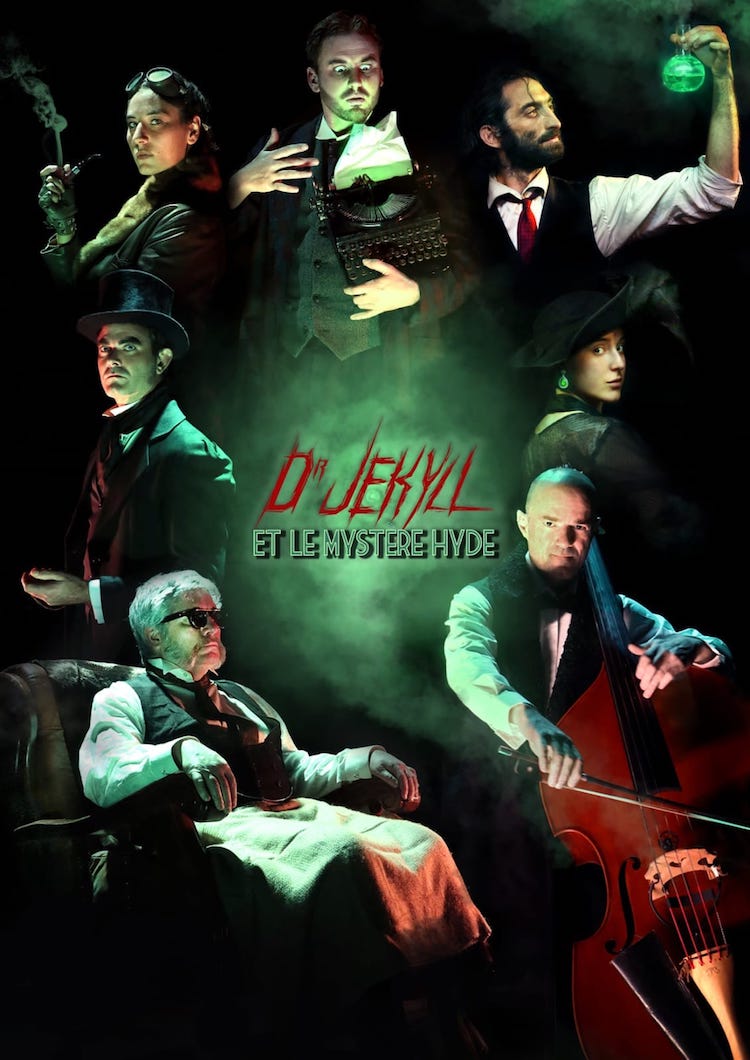
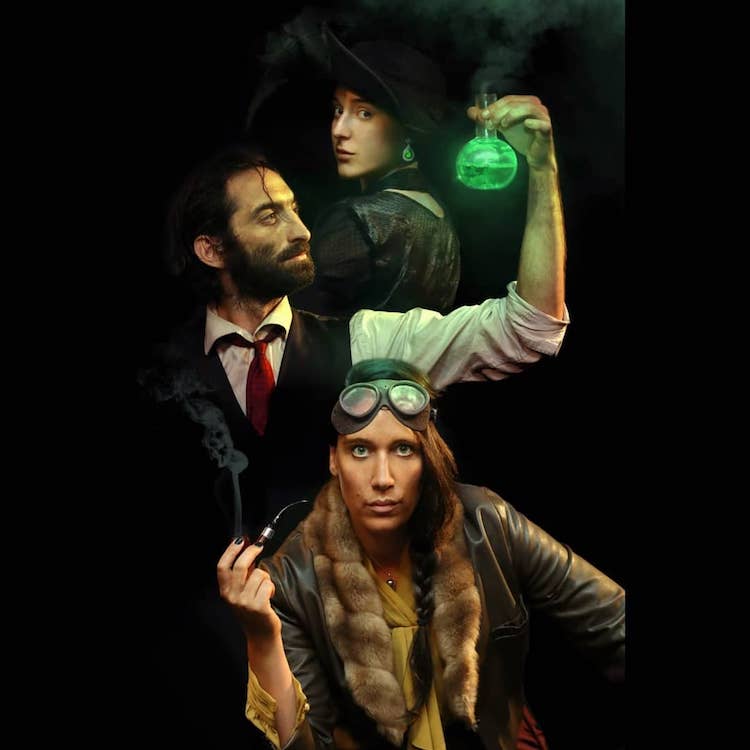
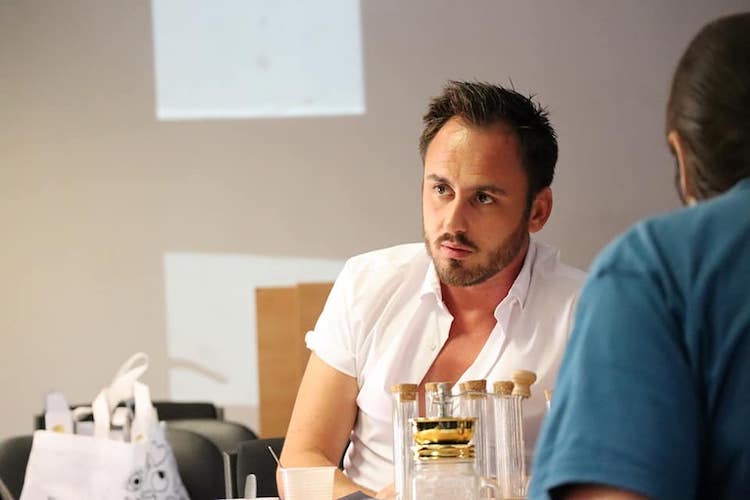
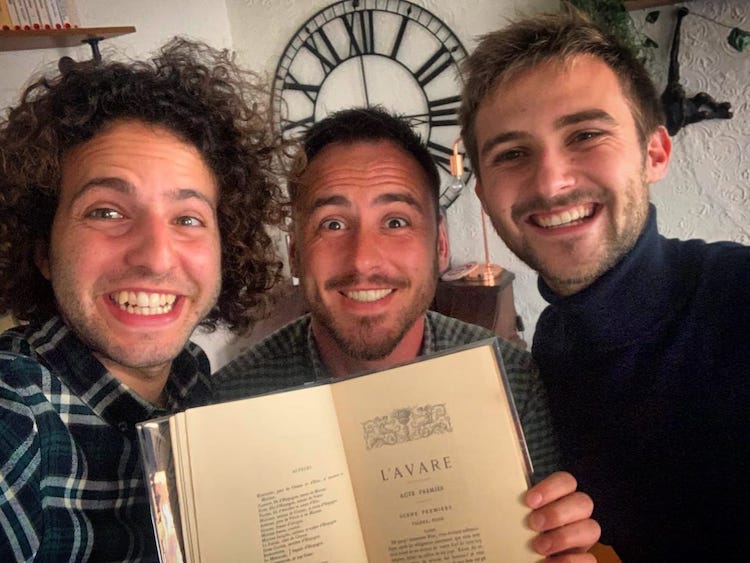
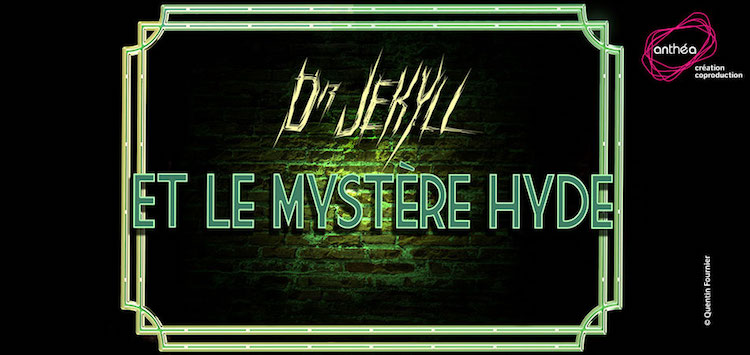
Leave a Reply